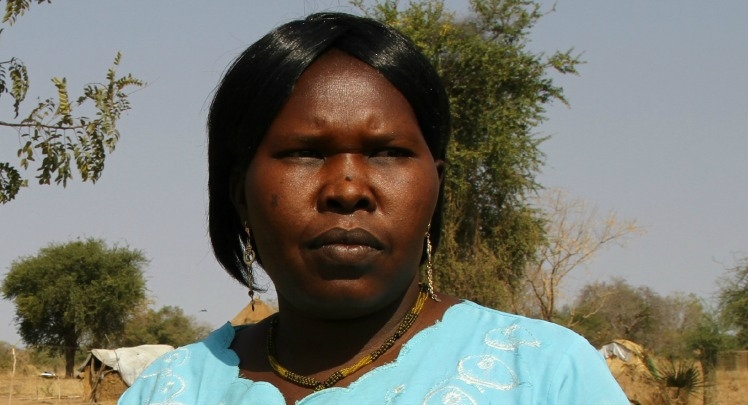The power of hygiene promotion in South Sudan

I’ve been travelling through the states of Northern Bahr el Ghazal and Warrap, gathering stories about the way people’s lives have been impacted by our work. I’ll admit, topics like open defecation and diarrhea aren’t always comfortable to talk about – but they are huge problems here in South Sudan that can make vulnerable children extremely ill.
Our village hygiene promotion work is changing that for children throughout the country: training communities about proper water, sanitation, and hygiene techniques and equipping them with the knowledge needed to reduce the spread of disease and help prevent malnutrition.
A spirit of collaboration
Village hygiene promotion is a tag-team partnership among Action Against Hunger staff, local officials, and community members. It involves both training the community at large and more targeted instruction for individuals selected by our staff and local leaders alike to create a hygiene committee.
The members, generally women, are respected within the community, display a motivation and passion to help their neighbours, and are willing to step up to be the support system needed for the community in our absence. Twice a week, they move door-to-door to monitor and promote proper sanitation and hygiene practices, reporting back to us on the progress the community is making and any challenges faced.
Training covers a wide range of topics, from proper waste disposal to how to build and maintain latrines, and educating the community about the links among hygiene, sickness and malnutrition.
Ayak Chan’s story
In Malualkon, in Northern Bahr el Ghazal, one household with a new latrine is Ayak Chan’s. Ayak, a 31-year-old mother of seven, is a proud member of her village hygiene committee. I couldn’t help but smile when she told me that, though her husband was the one who constructed the latrine, she’s the one who taught him how!
She also built a bathing shelter to keep contaminated bathing water separate from both the latrine and the kitchen. She’s taught all of her children how to use these structures, and why they are so critical for good health. Since then, she’s taught multiple neighbours how to build and maintain a latrine like hers. Today, out of 150 households in her community, Ayak’s latrine is one of 69 completed, with 77 more under construction.
A noticeable impact
Ayak said that before, trash, waste, and flies abounded and her children were frequently coughing and sick. She told me that since her family built and started using a latrine and bathing room—as well as kitchen drying racks and a clothesline to keep kitchen, clothing, and bathing water separate and protected from livestock—her children haven’t been sick.
What struck me, however, is the direct correlation between latrines and women and children feeling safe. Ayak used to walk a long distance into the bush in the middle of the night, by herself, to use the bathroom. She said it scared her and I could see why—she worried about lions and snakes, but mostly about being attacked by men.
Ayak told me she feels lucky that she hadn’t been attacked, but she knows other women nearby who have been assaulted.
More than health
In Warrap State, I spoke with Anei Lual and Arek Lual, local hygiene committee members in Tiitic Village. I asked Arek what it was like before latrines and bathing shelters and if a lack of privacy ever made her uncomfortable. She nodded and told me: “At times, you do fear as a woman to be seen by the men [bathing and using the bathroom openly].” Now, women in Tiitic not only have their privacy, they are also setting an example for their community and, for the first time, are in leadership positions.
It was a joy to see Anei’s face light up as she said: “I was very excited when I was selected because I will help the community. And if they are applying the same thing I’m applying at my household, I think that the community will improve and I will have done something great.”
I knew that Action Against Hunger’s water, sanitation and hygiene programmes were changing lives and making people healthier. But the benefits of these programmes extend so far beyond health: they are restoring dignity and privacy, they are providing the peace of mind that comes with feeling safe, and they are a much-deserved opportunity to empower women to become leaders in their community.
This article was originally published by Action Against Hunger on their blog, http://www.actionagainsthunger.org.uk/blog/power-hygiene-promotion-south-sudan, and is republished here with permission.









